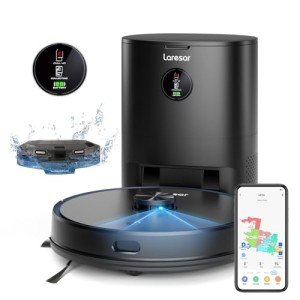The Rise of Floor Robots: A Comprehensive Guide
In recent years, the emergence of floor robots has actually changed the landscape of home cleaning and maintenance. Armed with sophisticated innovation, these intelligent gadgets are designed to decrease human effort while taking full advantage of efficiency. This article explores the different elements of floor robots, including their functionality, benefits, types, and factors to consider for buying one.
Understanding Floor Robots
Floor robots, commonly called robotic vacuums or floor cleaners, automate the process of cleaning floorings in residential and business spaces. They utilize a combination of sensors, mapping technology, and synthetic intelligence to navigate, determine dirt, and clean different types of surface areas. This development not only conserves time but also boosts the efficiency of cleaning efforts.
How Do Floor Robots Work?
Floor robots operate through a combination of software and hardware components developed to enhance their cleaning abilities. Below is a streamlined introduction of their functional process:
Mapping and Navigation:
- Using Lidar, electronic cameras, or infrared sensors, the robot creates a map of the area.
- It recognizes and avoids barriers, ensuring efficient navigation.
Cleaning Mechanics:
- Most floor robotics are equipped with turning brushes or suction mechanisms to collect particles.
- They can vary their cleaning modes based upon the kind of surface area (carpet, tile, etc).
Dirt Detection:
- Advanced designs use dirt-detection sensors to recognize greatly stained locations and tidy them more thoroughly.
Self-Charging:
- Once cleaning is complete or the battery runs low, many robotics instantly return to their charging stations.
App Integration:
- Many floor robotics include mobile applications that allow users to set up cleaning sessions, set cleaning modes, and monitor progress.
Advantages of Using Floor Robots
The popularity of floor robotics can be associated to several crucial benefits, consisting of:
- Time-Saving: Users can dedicate their time to more crucial jobs while the robot deals with the cleaning.
- Consistency: Robots can follow a regular cleaning schedule, guaranteeing a consistently clean environment.
- Hard-to-Reach Areas: Floor robots can browse under furniture and into difficult situations that standard vacuums might have a hard time to reach.
- Reduction of Allergens: Regular cleaning helps in reducing dust and allergens, adding to a much healthier home environment.
- User-Friendly: With basic interfaces and app performance, floor robots are available for users of any ages.
Kinds Of Floor Robots
There are a number of kinds of floor robotics readily available on the marketplace, each created to accommodate various needs:
| Type of Floor Robot | Description | Best Usage |
|---|---|---|
| Robotic Vacuums | Mainly created for vacuuming carpets and tough floors. | Daily cleaning of different surfaces. |
| Robotic Mops | Geared up with a mopping function for damp cleaning. | Ideal for tough surfaces needing damp cleaning. |
| Combination Robots | Combines vacuuming and mopping functionalities. | Flexible cleaning for a series of surface areas. |
| Specialized Robots | Created for particular tasks (e.g., pet hair elimination). | Homes with family pets or specific cleaning needs. |
Factors to consider When Buying a Floor Robot
Buying a floor robot involves numerous factors to consider to ensure that the selected model meets the cleaning requirements. Below are some aspects to remember:
Floor Type:
- Consider whether the robot is suitable for carpets, hardwood, tile, or a mix of flooring types.
Battery Life:
- Evaluate the robot's battery period to figure out the length of time it can clean up before needing a recharge.
Suction Power:
- Higher suction power is vital for efficient cleaning, specifically on carpets.
Navigation System:
- An advanced navigation system contributes to efficient cleaning patterns and much better challenge avoidance.
Dustbin Capacity:
- Larger dustbins need less frequent emptying, which is convenient for users.
Smart Features:
- Look for models with Wi-Fi connectivity, app assistance, and voice control compatibility for included benefit.
FAQs about Floor Robots
Q1: How much do floor robots cost?A1: Prices can range from ₤ 200 to over ₤ 1,000, depending on features and brand.
Q2: Can floor robots clean several floor types?A2: Yes, numerous robotic vacuums are developed to be efficient on both carpets and difficult floorings. Q3: How frequently need to I run my floor robot? robot mops : For optimum results, it is advised to set up daily or bi-weekly cleaning depending on foot traffic and family pet presence. Q4: Do floor robots work well with pet hair?A4: Models specifically developed for animal owners include
stronger suction power and special brushes to effectively remove family pet hair. Q5: Can I control my floor robot remotely?A5: Most modern floor robots come with app connection, permitting you to manage them from another location from your
smartphone. The introduction of floor robotics represents a significant improvement in home cleaning technology. Combining efficiency, user-friendliness, and advanced features, these gadgets offer a look
into the future of home maintenance. As consumers increasingly seek options that save time and promote tidiness, the floor robot market is poised for ongoing growth and development. With a variety of options available, comprehending their functions, benefits, and performances can help users select the best addition to their cleaning routine.

